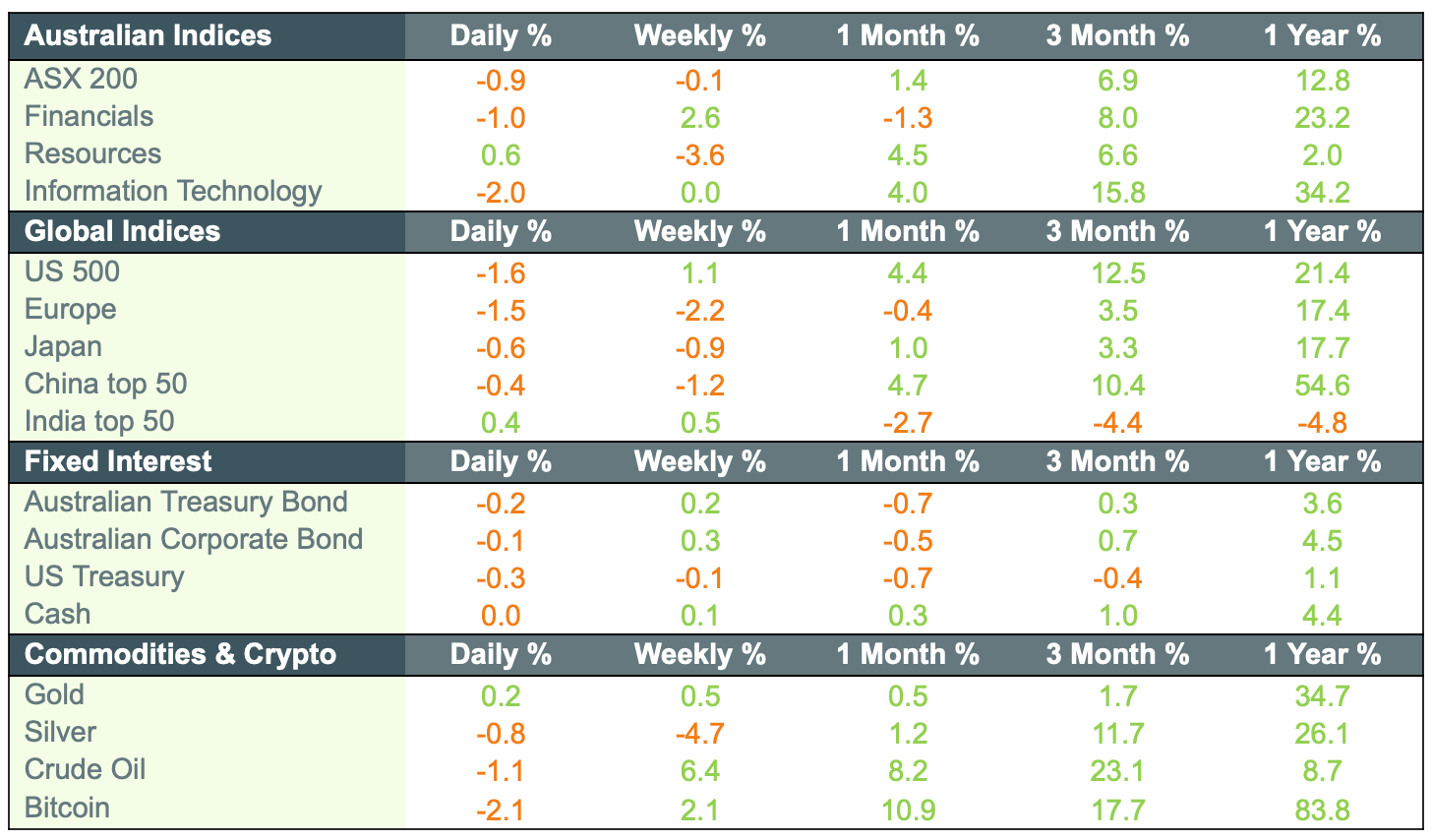The key takeaways from the last 24 hours
Australian market edges lower amid tech and bank declines
The Australian sharemarket ended the week marginally lower as initial optimism from softer local inflation was counterbalanced by global economic concerns. The S&P/ASX 200 Index declined by 80.8 points, or 0.92 per cent, on Friday to finish at 8662, resulting in a modest 0.1 per cent loss for the week. Sentiment was pressured by rising US inflation and new American tariffs. Weakness in the technology sector drove a 2.4 per cent decline, with Xero Limited (ASX: XRO) falling 3.2 per cent, Life360 Inc (ASX: 360) down 3.1 per cent, and WiseTech Global Limited (ASX: WTC) losing 2.4 per cent.
Banks and resources paint a mixed picture
The major banks contributed to the market drag, with Commonwealth Bank of Australia (ASX: CBA) down 1.6 per cent to $175.00, National Australia Bank Limited (ASX: NAB) off 1.3 per cent to $38.41, and Westpac Banking Corporation (ASX: WBC) slipping 1 per cent. Australia and New Zealand Banking Group Limited (ASX: ANZ), however, bucked the trend with a 0.7 per cent gain. Resource stocks were mixed; while Fortescue Metals Group Limited (ASX: FMG) gained 1.5 per cent and BHP Group Limited (ASX: BHP) rose 0.1 per cent, Rio Tinto Limited (ASX: RIO) declined 0.7 per cent. Mineral Resources Limited (ASX: MIN)rebounded 4.4 per cent following a steep fall the day before. In company news, The Star Entertainment Group Limited (ASX: SGR) tumbled 16.4 per cent to an all-time low after a failed asset sale, while ResMed Inc. (ASX: RMD) climbed 1 per cent on strong earnings. Novonix Limited (ASX: NVX) fell 4.4 per cent after shelving a graphite spin-out.
Global markets fall on US jobs miss and tariffs
Global equities retreated sharply on Friday, led by disappointing US jobs data and renewed trade tensions. The S&P 500 Index and Nasdaq Composite Index dropped 1.6 per cent and 2.2 per cent respectively, marking their largest single-day declines since April, while the Dow Jones Industrial Average fell 542 points. Weaker-than-expected payroll growth of 73,000 in July, coupled with downward revisions to previous months, pointed to underlying labour market weakness. The announcement of new US tariffs of 10 to 41 per cent on imports from Canada, India, and Taiwan further dented investor confidence. Corporate performances were mixed: Amazon.com Inc. (NASDAQ: AMZN) slid nearly 8 per cent on weak cloud guidance, Apple Inc. (NASDAQ: AAPL) lost 2.9 per cent despite strong results, while Eli Lilly and Co (NYSE: LLY) gained 3 per cent on drug coverage optimism. All three US benchmarks posted weekly losses.
Market movements


